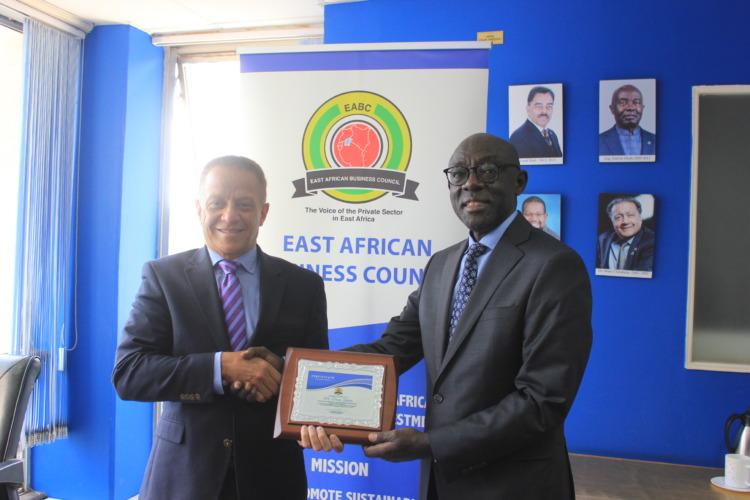The EAC bloc should urgently work to attract international investors and embark on joint regional investments in the vaccine manufacturing industry for quick economic recovery.
This is according to East African Business Council Chairman Nicholas Nesbitt who is calling for a coordinated approach on COVID-19 measures to spur EAC economic recovery and growth.
Nesbitt noted that joint EAC investment offers a larger pool of capital resources, expertise and market.
At the same time, EAC’s board has directed the EABC Secretariat to champion advocacy on the adoption of open skies and one network area to reduce the cost of doing business in the region.
The board said that open skies attract regional tourism and improve consolidation of EAC exports to overseas markets such as horticulture.
According to the board, open skies are also critical in supporting the resilience and recovery of tourism, hospitality and transport sectors, which were highly impacted by the pandemic.
Official data reveals that EAC Partner States lost an estimate of USD4.2 billion of international tourism receipts in 2020.
Additional information also shows that low access to vaccines, slow vaccine roll-out and potentially high cost of vaccinations risk holding back the recovery of EAC economies.
According to data by the African Development Bank, the EAC Gross Domestic Product growth is projected at 3.5 percent in 2021 and 4.7 percent in 2022.
vaccine diplomacy: A new weapon in a new superpower game
EABC CEO John Bosco Kalisa said the council has embarked on a regional SMEs platform to champion advocacy on access to markets, finance and roll out business development services to support resilience and expansion of SMEs across EAC borders and continental market of 1.3 billion consumers.
Kalisa noted that monitoring and quick elimination of Non-Tariff Barriers is important to facilitate cross-border trade and investment.
The CEO outlined the priority areas that the East African Business Council will champion to boost intra-EAC trade and investment.
These include harmonization of taxes, standards & SPS Measures, liberalizing of services, strengthening of regional value chains for industrialization, adoption of digital tools, e-commerce, and COVID-19 stimulus packages for businesses.
“Encouraging investments in environment conservation, adaptability and sustainability to push forward the EAC bloc into the blue and greener economy,” said Kalisa.
Africa’s Economic Prospects Post-COVID-19
He said that there is also need to fast-track inter-connectivity and development of multimodal water transport infrastructure to enhance the competitiveness and increase EAC exports to the Democratic Republic of Congo and other neighboring countries linked by Lake Tanganyika, Kivu, Victoria, Albert and River Nile and Kagera.
COVID Impact
A study by Deloitte says that the vaccine roll-out process in East Africa and largely Sub-Saharan Africa has remained largely slow due to logistical challenges, weak country administration, and public resistance.
According to the report, about 18.2 million doses have been administered in Sub-Saharan Africa, reflecting a 1.7 percent share of the population.
This is below the global average vaccination rate of 25.1 percent of the population.
“The delayed vaccine roll-out and the emergence of new variants indicate that the risk of a new wave of infections remains high in the region. This may impede the economic recovery in 2021 as nations will be forced to fall back to stringent social distancing measures witnessed in 2020.”
The report adds that economic activity in East Africa is estimated to have declined to a growth of 0.9 percent in 2020 from a growth of 6.6 percent in 2019 and is projected to recover to a growth of 3 percent in 2021.
The projected growth is attributable to the expected increase in private consumption and domestic demand after the easing of travel restrictions and rollout of vaccinations.
It also notes that about 39 million more Africans could fall into extreme poverty in 2021 if governments do not intervene with food relief measures. Job losses in 2020 are estimated at 30 million.
Overall, Sub-Saharan Africa and the North Africa regions experienced the lowest growth in at least 60 years.
Sub-Saharan Africa’s GDP growth shrunk by 1.9 percent, about USD 61 billion in output losses in 2020 and is expected to recover to a growth of 3.4 percent in 2021.
Does Africa have what it takes to produce human vaccine?
